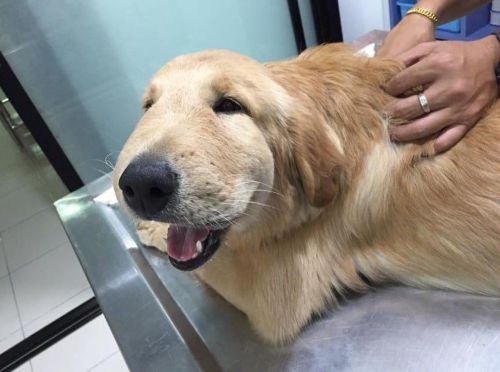

Allergic responses in pets can happen suddenly, with no warning, and worsen quickly. Several factors can cause these allergies, including environmental allergens, certain medications, specific foods, and insect stings. Owners have to react fast to ensure their pets get immediate care.
Many pet owners in the area search for reliable hospitals based on advertisements like “UrgentVet – Miami emergency vet clinics near me” when their pets display unusual symptoms. These clinics can quickly and compassionately address unexpected health concerns. This article explains how emergency veterinarians in Miami respond to allergic episodes.
Recognizing the Initial Warning Signs
The first signs of an allergic reaction are usually mild, but they develop rapidly with time. Once they show up, veterinary clinic emergency experts can identify these early signs. Some common symptoms are facial or limb swelling, ongoing itching, red skin, and unexpected vomiting or diarrhea.
Some pets can get hives or respiratory problems, both of which indicate an emergency. Based on their medical history, doctors act quickly to determine the underlying reason. Early intervention ensures that the pet heals more effectively and avoids long-term complications.
Immediate Stabilization Techniques
If they notice any swelling, they first try stabilizing the airway and breathing. Sometimes, a pet requires oxygen support, especially when an allergic reaction triggers respiratory distress. When hypotension or shock develops, intravenous fluid is the best treatment.
Experts use epinephrine to reverse the severe symptoms. Sometimes, they use corticosteroids and antihistamines to manage inflammation and reduce itching—these medications help stabilize their condition.
Diagnostic Tools and Rapid Testing
Experts often use different diagnostic tools and tests to confirm the allergic source. Some of their advanced tools, like blood tests, skin evaluations, and imaging, may help identify hidden problems. These tests will also help determine whether the issue is environmental or caused by medication.
Moreover, vets use test results to customize treatment plans according to the pet’s needs. For instance, the treatment for a flea bite reaction and a vaccine reaction are different. This customized approach guarantees that the pet receives relief without unnecessary drugs.
Treatment Plans Based on Severity
Veterinarians use different methods for dealing with each type of allergic reaction. The care plan for a pet depends on its severity. So, antihistamines and monitoring could be sufficient for mild responses. However, more severe situations require continuous monitoring, drugs, and occasionally overnight treatment.
Miami veterinarians adjust drugs and dosages based on the pet’s weight, age, and medical history. Adjustments are essential to avoid adverse effects and facilitate a speedy recovery. Flexible treatment also allows them to get better without more problems.
Monitoring Pets After Initial Care
After a pet has received treatment, it is closely watched to ensure its symptoms don’t return. Additionally, they are typically observed in a special area after they leave a Miami clinic. Experts check their vitals regularly, including temperature, heart rate, and oxygen saturation, to ensure the treatments have the desired result.
As soon as the initial symptoms subside, they begin monitoring for the development of late-phase allergic responses. So, to address these delayed responses, they pay close attention and revise their treatment plan if necessary. Once they have fully stabilized, care instructions are given.
Post-Emergency Care
It is critical to continue receiving care after the pets leave the clinic. During the follow-up appointments, Vets discuss additional testing or long-term allergy management with owners. They also advise changing one’s diet, using flea prevention, or switching up cleaning supplies.
Emergency clinics in Miami also encourage pet owners to have an emergency kit at home. This kit might include medication, phone information, and necessities. If owners are prepared ahead of time, they can react more quickly if symptoms return.
Tips for Owners to Support Emergency Care
Pet owners play a key role during such emergencies in Miami. Their prompt thinking and actions before arriving at the clinic often influence the outcome. So, to make things easier for vets and get things along faster, owners can:
- Bring any known allergens, such as food or medication packaging
- Discuss recent routine modifications or activities.
- Produce a list of past allergic reactions or medical records
- Describe symptoms accurately to the vet
- Maintaining a calm attitude will help to lower stress on them.
Tips to Prevent Allergic Reactions in Pets
Here are some suggestions to help your pets avoid allergic reactions:
- Monitor the Diet: Before giving them food, check the ingredients that can cause a reaction.
- Flea and Tick Control: Regular flea and tick prevention techniques help reduce the chance of bites.
- Limit Exposure to Environmental Allergens: Keep them inside during peak pollen seasons and limit exposure to dust.
- Avoid Certain Household Products: Be aware of cleaning products and air fresheners that can cause allergic reactions.
If you search for trusted clinics based on ads like “UrgentVet – Miami emergency vet clinics near me,” choose one with experienced staff and immediate response protocols. These clinics aid pets in a safe and efficient recovery by recognizing symptoms, administering medicines, and tracking outcomes. Allergic responses can be handled before they become severe with educated action from owners and expert care from qualified teams.


